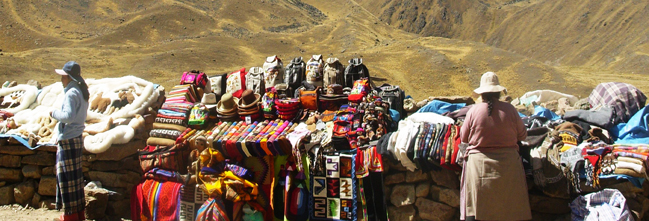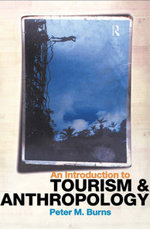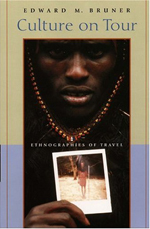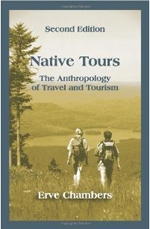
Despite economic setbacks, rising concerns about fluctuating oil prices and ecological impacts, the tourism industry is still a fast-growing sector worldwide. Anthropologists have found work in various pockets of the tourism industry. Many work as researchers alongside other social scientists on government-funded projects dealing with heritage, cross-cultural exchange and communication. Others find jobs as private consultants or analysts working on policy issues; or as educators informing tour operators and tourists about cultural and environmental sensitivities. Anthropologists may also work alongside media companies producing films about tourism in particular regions.
The anthropology of tourism as a specialist area has seen important growth in recent years in Britain and elsewhere. As more communities become dependent on added income brought in from tourism, and tourists become increasingly aware of the ethical, environmental and political dimensions of being a tourist, new demands are being placed on the industry. The skills that anthropologists can bring – local language abilities, in-depth understanding of a particular region, ethnographic research techniques – make them particularly valuable to public and private organisations in the industry.
Recommended Resources
Films
The following film is a TEDx presentation delivered by anthropologist Tom Selwyn. The talk is entitled ‘Being at home in the world: explorations in the anthropology of hospitality’.
The following film Memories for Sale provides an interesting case study in the anthropology of tourism and is distributed by the Royal Anthropological Institute.
 MEMORIES FOR SALE
MEMORIES FOR SALE
Director Carolina Corral Paredes
Release 2009
Length 25 mins
Location Chiapas, Mexico
Language English, Tzotzil (English sub)
Ethnic group: Somali and Sudanese refugees
Doña Rosa is an indigenous old woman who sells crafts in the market. Carlos is an enthusiastic tour guide who offers tours into indigenous people’s houses and families, including Paola’s. Their lives are dedicated to providing what a group of inquisitive tourists, and a filmmaker, might be looking for in an indigenous and picturesque region in the southern Mexican state of Chiapas.
Books



An Introduction to Tourism and Anthropology by: Burns, P. (Routledge, 1999)
Culture on Tour: Ethnographies of Travel by:Bruner,E. (University of Chicago Press,2004)
Native Tours: The Anthropology of Travel & Tourism 2nd Edition by:Chambers, E. (Waveland Pr Inc,2009)
Working in Tourism: The UK, Europe and Beyond by: Verité Reily Collins (Vacation Work Publications, 2004)
General
http://www.indiana.edu/~wanthro/theory_pages/tourism.htm – Margaret Hathaway from Indiana University gives a very good brief tutorial on the anthropology of tourism.
https://www.jiscmail.ac.uk/cgi-bin/webadmin?A0=TOURISMANTHROPOLOGY – a mailing list aimed at practitioners with an interest in tourism.
http://discovertourism.ca/en/about_tourism/top_ten_things_tourism_employees_like_about_their_jobs– an article stating the reasons why employees like working in the tourism industry.
https://www.rgs.org/schools/teaching-resources/tourism/– teaching resources exploring the tourism industry produced by the Royal Geographical Society.
http://unesdoc.unesco.org/images/0014/001475/147578e.pdf– a report on tourism, culture and sustainable development produced by UNESCO
http://www.traveljobsearch.com/– For jobs in the tourism and travel sector.
Recruitment
Prospects website resource links
Professional Organisations, Groups and Associations
International Institute for Culture,Tourism and Development – an international research centre aiming to provide analysis of current trends, issues and research on culture, tourism and development.
The World Tourism Organisation – a specialised agency of the UN committed to ethical action and policy development on tourism, travel and the Millennium Development Goals.

